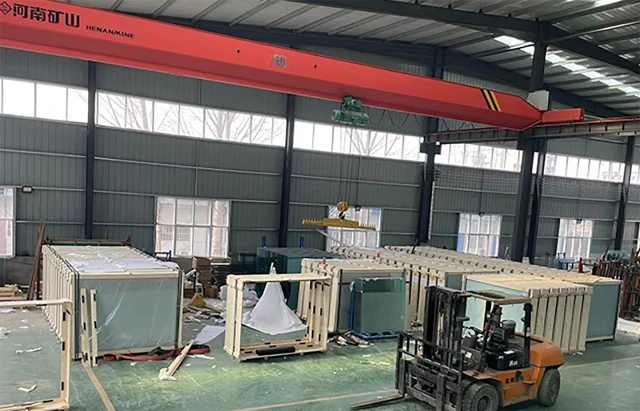The Growing Demand for Float Glass in Wholesale Markets
Float glass, a fundamental material in construction and manufacturing, is increasingly becoming a focal point in wholesale markets worldwide. The process of creating float glass involves floating molten glass on top of molten tin, resulting in a smooth, flat, and high-quality product. This process not only enhances the optical clarity of the glass but also provides superior thickness and strength, making it ideal for various applications, from architectural to automotive.
The Rising Trend in Float Glass Wholesale
The demand for float glass is soaring, driven by expansion in the construction and automotive sectors. As urbanization accelerates globally, the need for residential and commercial buildings rises. Float glass is favored for its aesthetic appeal and energy efficiency, as modern architecture often features extensive glazing to maximize natural light and minimize heat loss. This trend is evident in many urban developments, where large glass facades are not only visually striking but also functional, allowing for improved energy performance.
Moreover, the automotive industry is also shifting toward more glass-intensive designs for vehicles. Float glass is becoming increasingly popular for windshields and windows due to its lightweight properties and durability. As electric vehicles gain popularity, manufacturers are leveraging float glass to create lighter and more energy-efficient vehicles, further driving wholesale demand.
The Impact of Technology
float glass wholesale
Technological advancements in glass manufacturing have also positively impacted the float glass wholesale market. Innovations such as low-emissivity (low-E) coatings enhance the thermal performance of float glass, making it even more appealing for energy-efficient buildings. These coatings reflect heat while allowing light to pass through, creating a comfortable indoor environment and reducing reliance on heating and cooling systems. As sustainability becomes a priority for many builders and consumers, the demand for such advanced float glass products is likely to surge.
Challenges in the Wholesale Market
Despite the positive outlook, the float glass wholesale market is not without challenges. The industry is grappling with fluctuations in raw material costs, which can impact pricing and profit margins. Additionally, supply chain disruptions, whether due to geopolitical tensions or natural disasters, can lead to delays and shortages. This unpredictability necessitates that wholesale distributors remain agile and responsive to market changes.
Moreover, sustainability concerns are prompting manufacturers to explore eco-friendly production methods. This shift may require significant investment in new technologies and processes, potentially raising initial costs. However, those who adapt to these trends stand to benefit in the long run, as environmentally-conscious consumers increasingly favor products from sustainable sources.
Conclusion
The float glass wholesale market is poised for significant growth, propelled by trends in construction and automotive innovations. While challenges linger, the industry's ability to adapt to changing demands and incorporate new technologies will play a crucial role in shaping its future. As the world continues to urbanize and prioritize sustainability, float glass will undoubtedly remain a vital component of modern architecture and design, securing its place in the wholesale market for years to come.
 Afrikaans
Afrikaans  Albanian
Albanian  Amharic
Amharic  Arabic
Arabic  Armenian
Armenian  Azerbaijani
Azerbaijani  Basque
Basque  Belarusian
Belarusian  Bengali
Bengali  Bosnian
Bosnian  Bulgarian
Bulgarian  Catalan
Catalan  Cebuano
Cebuano  Corsican
Corsican  Croatian
Croatian  Czech
Czech  Danish
Danish  Dutch
Dutch  English
English  Esperanto
Esperanto  Estonian
Estonian  Finnish
Finnish  French
French  Frisian
Frisian  Galician
Galician  Georgian
Georgian  German
German  Greek
Greek  Gujarati
Gujarati  Haitian Creole
Haitian Creole  hausa
hausa  hawaiian
hawaiian  Hebrew
Hebrew  Hindi
Hindi  Miao
Miao  Hungarian
Hungarian  Icelandic
Icelandic  igbo
igbo  Indonesian
Indonesian  irish
irish  Italian
Italian  Japanese
Japanese  Javanese
Javanese  Kannada
Kannada  kazakh
kazakh  Khmer
Khmer  Rwandese
Rwandese  Korean
Korean  Kurdish
Kurdish  Kyrgyz
Kyrgyz  Lao
Lao  Latin
Latin  Latvian
Latvian  Lithuanian
Lithuanian  Luxembourgish
Luxembourgish  Macedonian
Macedonian  Malgashi
Malgashi  Malay
Malay  Malayalam
Malayalam  Maltese
Maltese  Maori
Maori  Marathi
Marathi  Mongolian
Mongolian  Myanmar
Myanmar  Nepali
Nepali  Norwegian
Norwegian  Norwegian
Norwegian  Occitan
Occitan  Pashto
Pashto  Persian
Persian  Polish
Polish  Portuguese
Portuguese  Punjabi
Punjabi  Romanian
Romanian  Russian
Russian  Samoan
Samoan  Scottish Gaelic
Scottish Gaelic  Serbian
Serbian  Sesotho
Sesotho  Shona
Shona  Sindhi
Sindhi  Sinhala
Sinhala  Slovak
Slovak  Slovenian
Slovenian  Somali
Somali  Spanish
Spanish  Sundanese
Sundanese  Swahili
Swahili  Swedish
Swedish  Tagalog
Tagalog  Tajik
Tajik  Tamil
Tamil  Tatar
Tatar  Telugu
Telugu  Thai
Thai  Turkish
Turkish  Turkmen
Turkmen  Ukrainian
Ukrainian  Urdu
Urdu  Uighur
Uighur  Uzbek
Uzbek  Vietnamese
Vietnamese  Welsh
Welsh  Bantu
Bantu  Yiddish
Yiddish  Yoruba
Yoruba  Zulu
Zulu 

